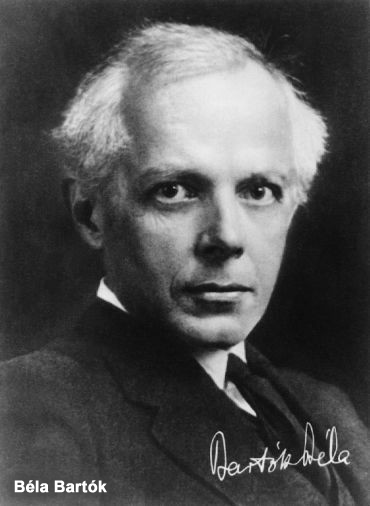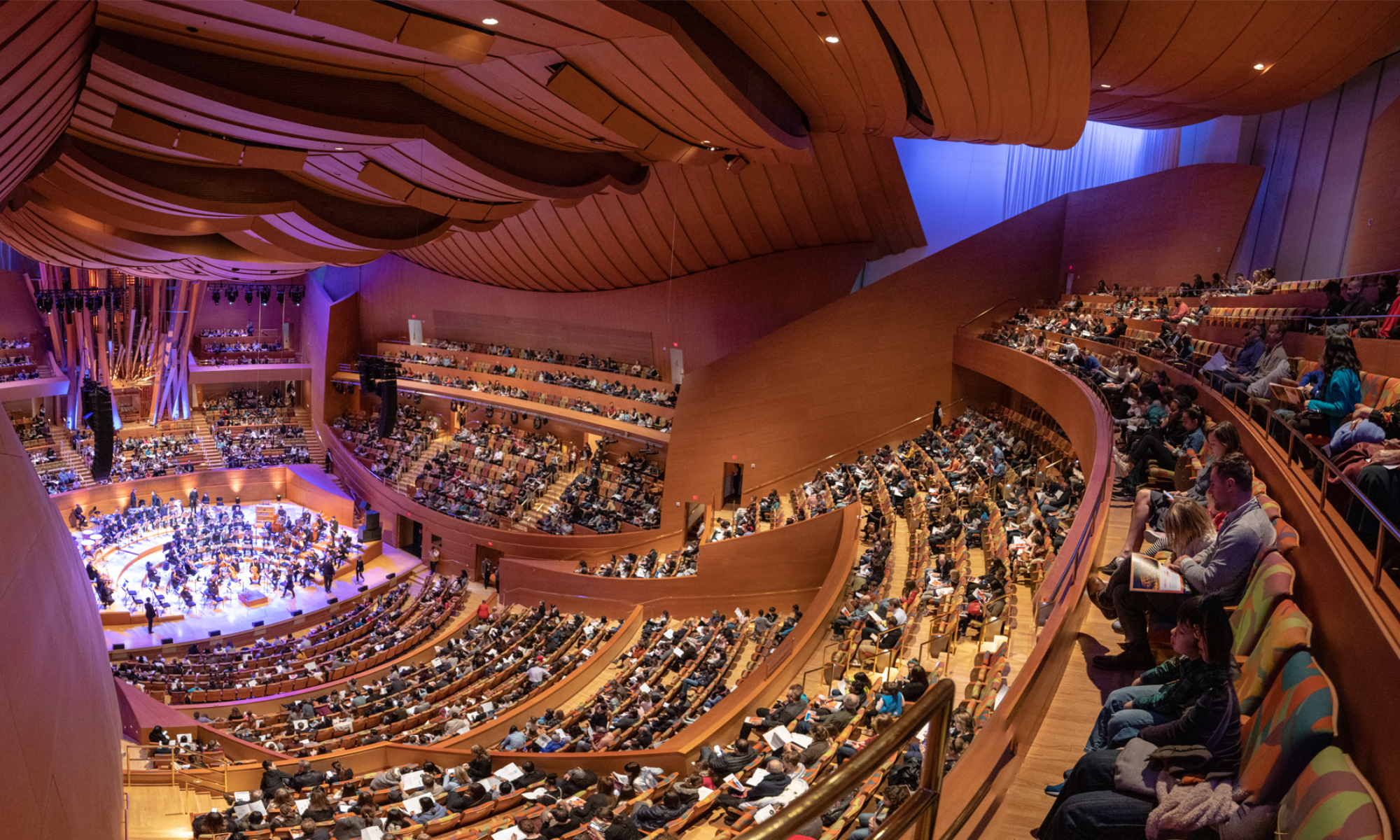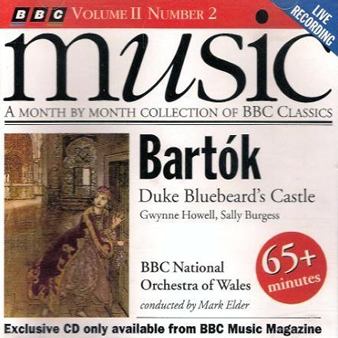BBC National Orchestra of Wales – Mark Elder, conductor (BBC Music)
Recorded: Live at St. David’s Hall, Cardiff, Wales – January 11, 1992
ONE-SENTENCE REVIEW:
For some reason, I thought Bluebeard was a pirate story – but, in reality, he is a violent guy who keeps marrying and murdering his wives – and then brings the next potential wife to his castle (think Sweeney Todd with less of a motive).
ORIGINAL LINER NOTES:
The early years of this century witnessed radical developments in Hungarian music and literature. Endre Ady and Bela Balazs achieved significant reforms in poetry and drama, and Bela Bartok joined forces with his friend Zoltan Kodaly to explore the riches of Hungarian folk music.
 Balazs dedicated his one-act play Bluebeard’s Castle to both Bartok and Kodaly, but it was Bartok who responded more readily to Balazs’s potent symbols and storyline.
Balazs dedicated his one-act play Bluebeard’s Castle to both Bartok and Kodaly, but it was Bartok who responded more readily to Balazs’s potent symbols and storyline.
The idea of male secrecy challenged by female curiosity must have greatly appealed to him: he was, after all, a profoundly private individual whose life was underscored by powerful infatuations and deep-rooted relationships.
All three of Bartok’s stage works – Bluebeard’s Castle, The Wooden Prince and The Miraculous Mandarin – deal with some aspect of man’s relationship to woman.
Bartok wasn’t the first composer to set the story of Bluebeard to music: Gretry, Offenbach and Dukas preceded him. But the Bartok/Balazs collaboration is unique – in its narrative simplicity, the psychological force that lies behind the characters and in its very personal symbolism.
The drama is internalized, its outward manifestations merely the guides to a whole range of repressed conflicts. The descriptive power of the music equals, indeed surpasses, most other works of its kind; seven doors and seven meaningful spectacles behind them, all reflected in orchestration that is so startlingly graphic that a physical stage set hardly seems necessary.
 It is for this reason that Bluebeard’s Castle relies less on its theatrical production than on its musical interpretation.
It is for this reason that Bluebeard’s Castle relies less on its theatrical production than on its musical interpretation.
Although its musical language is firmly rooted among the somber woodlands of Debussy’s Pelleas, Bluebeard has its own spicy tang and graphic impact.
Bartok revised his original score before the 1918 Budapest premiere and continued in effect minor changes up until the Thirties.
In its final form, Bluebeard’s Castle is unquestionably one of the century’s most magnetic operatic masterpieces.
TRACK LISTING:
- 1: Prologue: auguries of darkness and desire [3:16]
- 2: The arrival [15:21]
- 3: First Door: the torture chamber [4:41]
- 4: Second Door: the armory [4:17]
- 5: Third Door: the treasury [2:17]
- 6: Fourth Door: the garden of flowers [4:52]
- 7: Fifth Door: expansive domains [6:46]
- 8: Sixth Door: the lake of tears [13:52]
- 9: Seventh Door [9:47]
FINAL THOUGHT:
It’s pretty dark, disturbing stuff – now some of those pictures of Bartok (from previous blogs here and here) make a little more sense.
 Emily Sachs – President – Manka Music Group (A division of Manka Bros. Studios – The World’s Largest Media Company)
Emily Sachs – President – Manka Music Group (A division of Manka Bros. Studios – The World’s Largest Media Company)




Your opening remarks suggest you’re confusing Bluebeard for Blackbeard the pirate.
You are absolutely right, Jack. And it was, sort of a (lame) joke. But it does seem that Bluebeard should be a pirate and not just some crazy guy who doesn’t even have a blue beard.